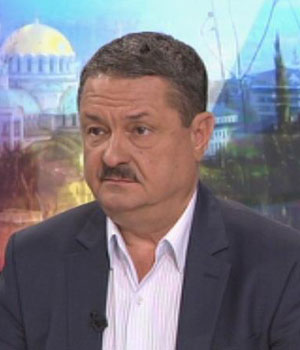Recently,the 130th anniversary since the start of regular meteorological research in Bulgaria, has been marked. The date is little known outside the circles of meteorologists, but is associated with one of the most significant events in the field of science and technology in the XIX century in this country – opening of the first Bulgarian meteorological station.
Today, when the territory of Bulgaria is covered by dense meteorological network and we are part of the international meteorological exchange, we can hardly imagine how it all began. The date was February 1, 1887 whenthe first permanent meteorological station made its first measurements in the courtyard of the Sofia Classical School. Meteorological observations were entrusted to Marin Buchvarov, at that time a professor at the Sofia Male High School and future professor of astronomy at the "St. KlimentOhridski"University. The results were published in the Official Gazette, which was the beginning of regular providing this kind of information to the public. The event was not only a step in the field of meteorology, but it putthis country on par with developed at that time European countries and opened new horizons.Just three years later, the station became central one as a meteorological network gradually started to emerge. In 1891 Bulgaria already participated as a member of the conference of directors of meteorological services in Munich.
 What have been the achievements for these 130 years? More from associateproffesor Georgi Rachev, climatologist and lecturer at the Sofia University:
What have been the achievements for these 130 years? More from associateproffesor Georgi Rachev, climatologist and lecturer at the Sofia University:
“At that timepoor Bulgariawhich just gained its freedom managed through several German alumni to come on par with developed European countries. We started with very good and very accurate measurements of weather conditions,” Professor Rachev points out.“Bulgaria is located at the southern end of the temperate climate zone. These climatic features, combined with the relief require a great deal of recognition of individual characteristics. Climate in Sofia is very different from that just 100 kilometres away,as there are landscape areas with unique climatic characteristics, too. If wedidn’t know the details, we would not be able to obtain these results. Just like today, 130 years ago people wanted to know about Bulgaria’s unique climate and weather.”
According to associate professor Rachev,information about the weather is of great importance as not knowing the facts may cause loss of life. "Without meteorology modern agriculture, tourism, shipping, aviation, etc. cannot exist", Assoc. professorRachevsays:
"We are part of the world, and the world moves forward.The policy ofthe National Institute of Meteorology and Hydrology at the Bulgarian Academy of Sciences seems surprising, as they want to close 2/3 of weather stations in Bulgaria that also send data for the international information exchange. You know that Bulgaria is at one of the last places in Europe when clean air is considered. That is whyrefusing to provide meteorological information to the European center that prepares short- and medium-term forecasts with the explanation that the data could be used for commercial purposes is absolutely unacceptable. The International Meteorological Organization is based on the fact that all participants selflessly provide information. It is surprising that now we act in a non-European way,” Assoc. Prof. Georgi Rachev says in conclusion and we are left to think about what kind of meteorologicalnetwork the heirs of those who started its development 130 years ago would have.”
English: Alexander Markov
The 33rd Bulgarian polar expedition is heading to Antarctica to continue its scientific research in cooperation with scientists from different countries. For the first time, travelers from two Balkan countries - Greece and Montenegro, as well as from..
The program of the Orthodox Book Week offers meetings with authors, publishers and translators of Orthodox books from the last few years. The event is held until November 10 at the ''St. Procopius of Varna'' Church, with meetings taking place every..
The "Kabiyuk" horse breeding farm in the village of Konyovets is the oldest stud farm in Bulgaria, founded in 1864 by Midhat Pasha, the governor of the vilayet of Ruse, to produce horses for the Turkish army. The farm existed until the Russo-Turkish War..
Nuredin Nuredinaj comes from the historical-geographical region of Gòra in Northeastern Albania, where 90% of the inhabitants identify themselves as..

+359 2 9336 661
